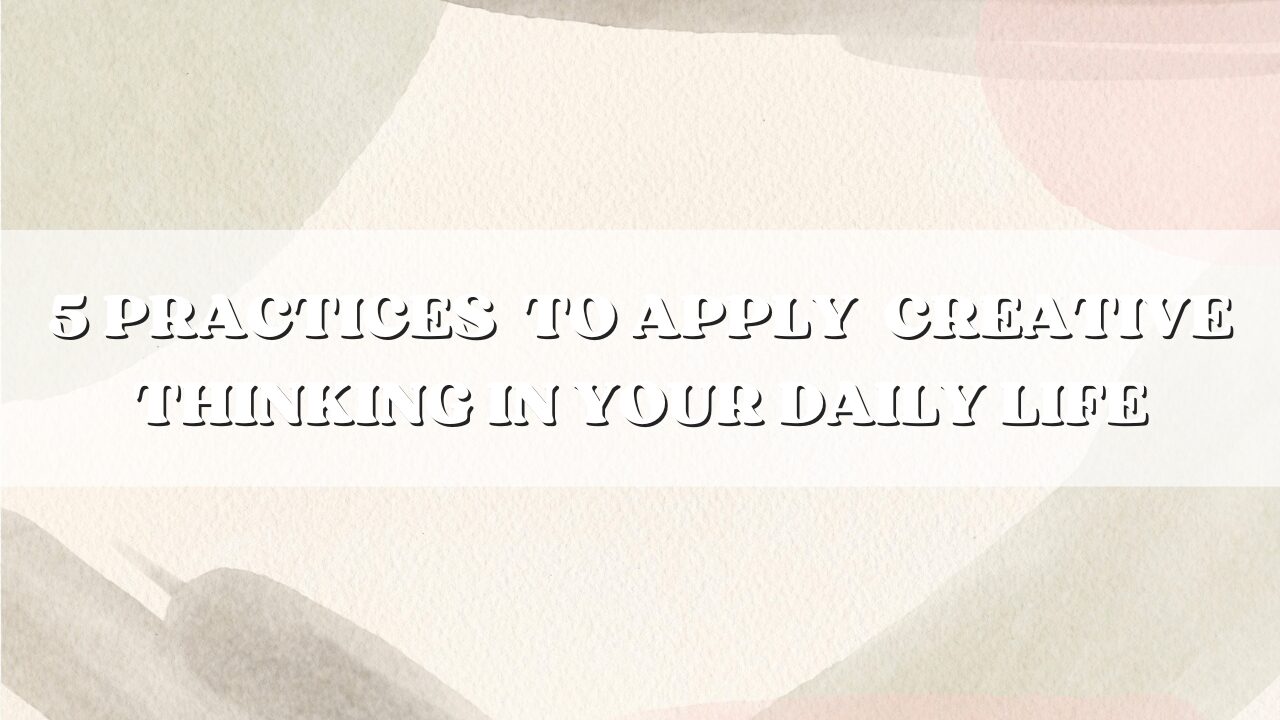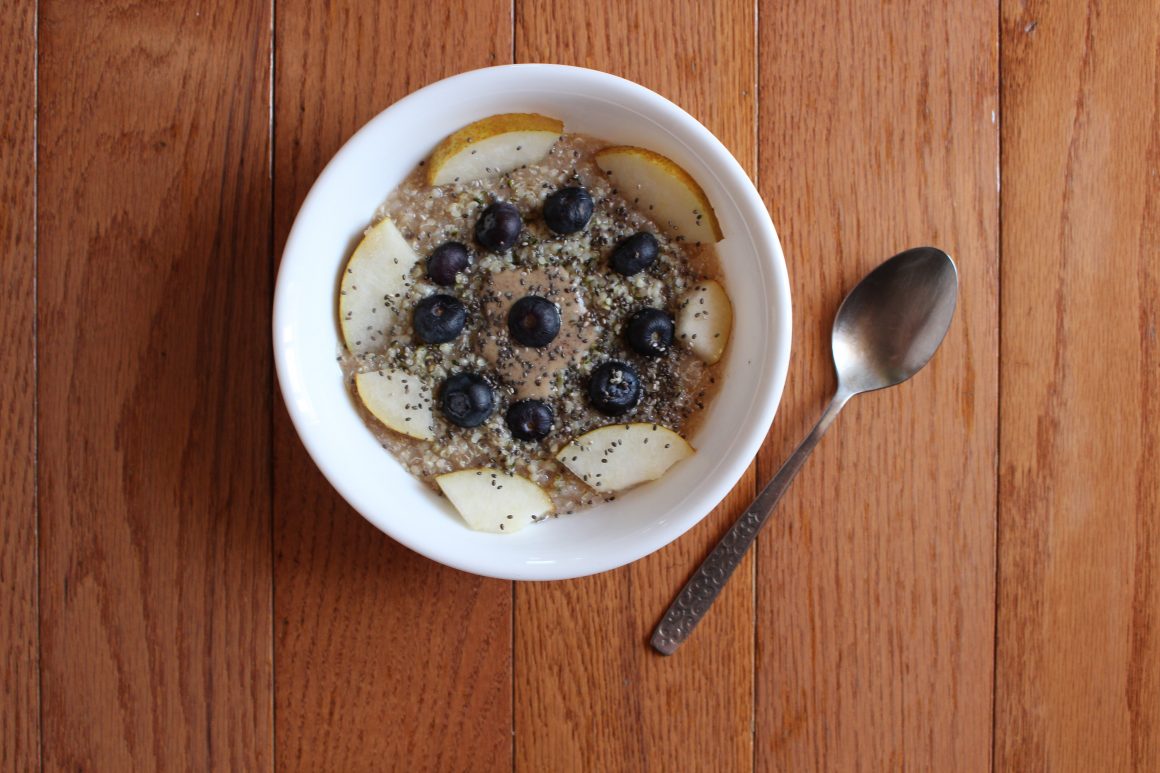
This post is all about how to apply creative thinking in your daily life
What does it mean to be creative? It takes the ability to think outside the box, make use of resources, gather inspiration from anything and more.
I believe that we’re all creatives and can naturally apply creative thinking – not only when it comes to projects or ideas, but in our everyday life.
The real work comes with building the mindset that strengthens your creative thinking skills.
In this post, I’ll explore how to cultivate creative thinking, examine the importance of creative thinking, and review some of the benefits of creative thinking to help you unlock your own creative potential.
Table of Contents
What Is Creative Thinking?
By definition, creative means:
having the power to bring something new into being, as a creature, or to evolve something original from one’s own thought or imagination, as a work of art or invention
(source)
Therefore, creative thinking is how you mobilize this power. It’s the ability to take an original idea and look at it in new ways, think outside the box—all created from one’s mind.
It’s about breaking free from routine thought patterns and exploring alternatives, even if they initially seem unconventional or unrealistic.
But cultivating creativity isn’t just for artists or writers as the definition above may allude to. It’s a powerful tool for anyone looking to enhance their life, gain fresh perspectives, and learn to adapt to new situations.
The Importance of Creative Thinking
The importance of creative thinking goes beyond just generating ideas; it helps you navigate life with flexibility, resilience, and adaptability.
Creative thinking skills are beneficial for personal development as well. They open up opportunities for self-discovery, allowing you to get to know yourself better and find unique ways to express and articulate your ideas.
The more you dive into creative thinking, the more connected you become with your own ideas, building your confidence along the way. This habit sharpens your ability to turn thoughts into more original and authentic outcomes and deepens your imagination.

Benefits of Creative Thinking
The benefits of creative thinking span all areas of life. Here are a few key benefits:
Open-Minded: Creative thinking opens your mind to a diverse range of ideas, perspectives, and information which allows you to see beyond conventional solutions to consider alternative approaches.
Greater Adaptability: Creativity subconsciously makes you more adaptable, allowing you to adjust to new circumstances and leverage your resources to solve problems.
Increased Confidence: As you develop creative solutions, you become more confident in your ideas and your ability to handle challenges.
Personal Fulfillment: Creativity adds a layer of fulfillment to everyday life, making even mundane activities feel more exciting and enjoyable.
Now, onto the 5 practices you can apply to cultivate creative thinking in your life.
Embrace Curiosity and Ask Questions
Curiosity is a key ingredient in creativity. When you approach the world with a curious mindset, you open yourself up to new learnings and alternate perspectives. Asking “why,” “how,” and “what if” about things around you can lead to new ideas and deeper insights.
Try this: Dedicate a few minutes each day to exploring questions that pop into your mind. It can be about anything—from how things work to why certain patterns exist. Allowing your curiosity to flow freely will nurture a habit of creative exploration.
Make Time for Brainstorming
Creativity needs a little breathing room. To dive into creative thinking, make time for brainstorming sessions where you let ideas flow freely. This dedicated time for idea dumping can help you overcome mental blocks and spark inspiration. Put your phone and laptop away, grab a pen and paper, and let your mind wander without judging ideas can often lead to solutions and creative breakthroughs.
Try this: Set aside 10-15 minutes a few times a week to brainstorm without any filters. Jot down ideas, even if they seem silly at first—you never know what could develop from these initial sparks.

Read Broadly Across Different Topics
Reading across a variety of subjects stimulates your mind and gives you fresh insights. When you expose yourself to new information, your mind begins connecting the dots between different ideas, enhancing your creative thinking skills. Reading outside your comfort zone can be especially inspiring, helping you to see the world in new ways.
Try this: Each month, pick one book or article from a topic you’re not familiar with. This could be a scientific discovery, a historical event, or a philosophy piece. By challenging your mind, you’re actively encouraging creative thinking.
Cultivate a Mindfulness Practice
Practicing mindfulness can sharpen your focus and boost your creativity. By learning to be present and fully engaged in the moment, you open yourself up to more mental clarity and emotional resilience, which are essential for creativity. Mindfulness allows you to listen to your thoughts without judgment, creating a safe space for ideas to emerge freely.
Try this: Set aside a few minutes each day for mindfulness exercises, like breathing deeply or meditating. Being mindful can make it easier to access your creative thoughts, free from mental clutter and distraction.
Try New Hobbies and Activities
Trying new activities can help you tap into unexplored parts of your mind. Whether it’s painting, learning a new instrument, or even cooking a new dish, new activities encourage you to explore different ways of thinking and can boost creative thinking skills. Often, engaging in something new unlocks ideas and perspectives that you may not have considered before.
Try this: Make a list of hobbies you’ve always wanted to try. Commit to exploring one new activity every month, even if it’s just a mini-project. The goal is to have fun, experiment, and see where your curiosity leads.
Conclusion
Cultivating creative thinking isn’t a single event but a journey of self-discovery and growth. From embracing curiosity to challenging assumptions, these strategies can help you unlock your potential and reap the benefits of creative thinking. By incorporating even a few of these habits into your life, you’ll start to see improvements not only in your creative abilities but also in your confidence, problem-solving, and personal development.








